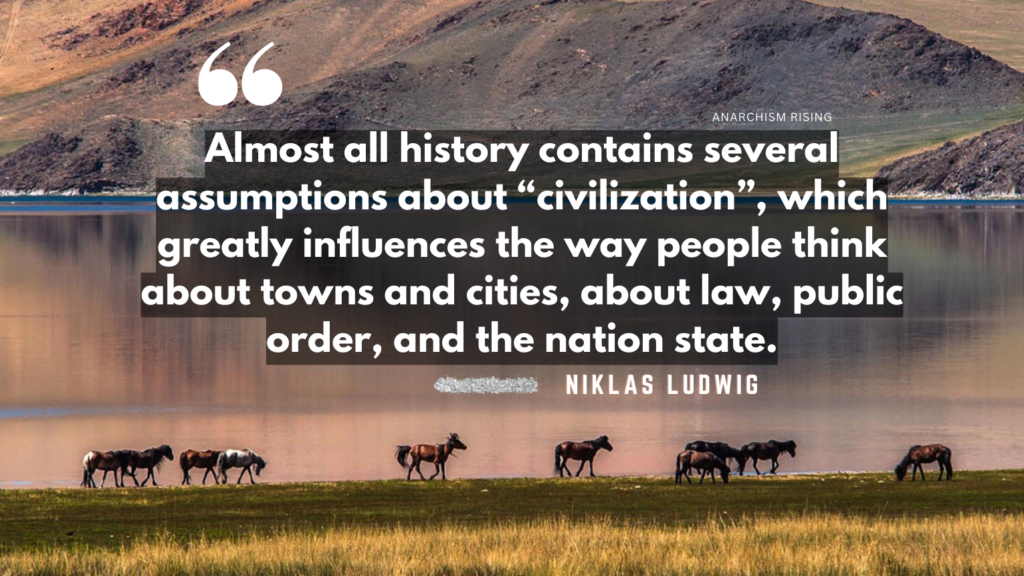
The history of the peasants is written by the townsmen
The history of the nomads is written by the settled
The history of the hunter-gatherers is written by the farmers
The history of the nonstate peoples is written by the court scribes
All may be found in the archives catalogued under “Barbarian Histories”
—James C Scott
Almost all history contains several assumptions about “civilization”, which greatly influences the way people think about towns and cities, about law, public order, and the nation state. The narrative goes something like this – plant and animal domestication allowed humans to finally stop wandering and settle down into a sedentary, agricultural based lifestyle, which resulted in higher standards of living and a more rich, secure way of life. This in turn allowed technological advancements that ultimately resulted in our modern world, where more than 50% of all humanity lives in villages, towns, and cities, and are part of a nation state.
But there are problems with this story – archaeological evidence, and even historical evidence beginning several thousand years ago, doesn’t quite fit the civilization narrative. Rather, the evidence seems to indicate that, up until a few hundred years ago, most people were not part of a nation state, and did not live in cities. In fact, cities were (and arguably still are) dangerous places, where the vast majority of people were slaves, where periodic famine and disease decimated populations, and warfare was continual and many cities were wiped completely off the map. The mobile peoples lived much more prosperous lives (except for the city elites of course) and tended to be healthier and in many cases more technologically advanced.
For many years I had intuitively felt that this must be the case as I studied ancient history, including the great influence of the ancient Central Asian tribes on our world, and the relatively late beginnings of the city-state. But it was two books that provided the recent inspiration and motivation to study this subject in detail. The first was Carl Sagan’s great 1994 book Pale Blue Dot: A Vision of the Human Future In Space, and the second was James C Scott’s (the same guy who wrote The Art of Not Being Governed) 2017 book Against The Grain.
Watch:
The Sedentary Life Has Left Us Edgy, Unfulfilled – https://youtu.be/YH3c1QZzRK4
James Scott Talk – https://youtu.be/u2ukte-je8k
Riggenbach On James C Scott – https://youtu.be/It58NNdiLK0
Listen:
Keep On Movin’ – https://youtu.be/9LLHgQr8xDc
Readings:
Pale Blue Dot – https://www.amazon.com/Pale-Blue-Dot-Vision-Future/dp/0679438416/ref=tmm_hrd_swatch_0?_encoding=UTF8&qid=&sr=
Against The Grain – https://www.amazon.com/Against-Grain-History-Earliest-States/dp/0300182910
Guardian Review Of Against The Grain – https://www.theguardian.com/books/2017/nov/25/against-the-grain-by-james-c-scott-review
The Art of Not Being Governed: An Anarchist History of Upland Southeast Asia (Yale Agrarian Studies Series) https://a.co/aNAFp3N
